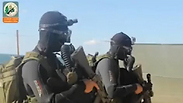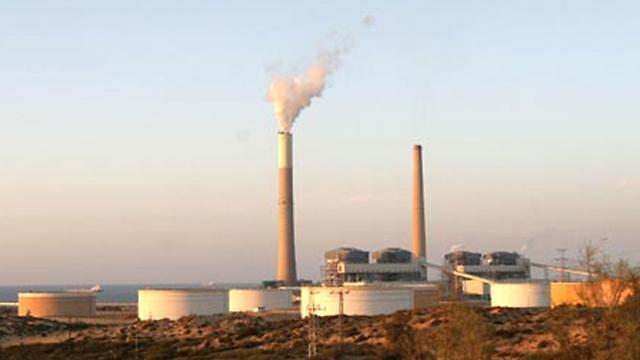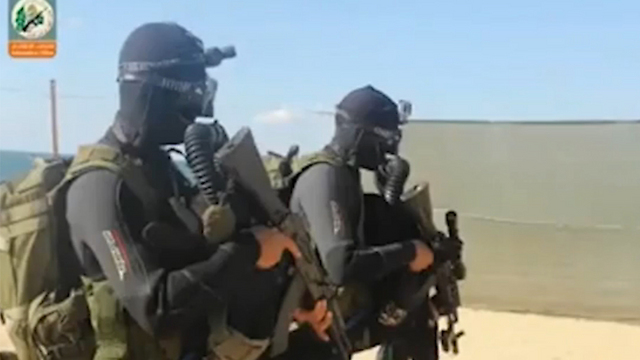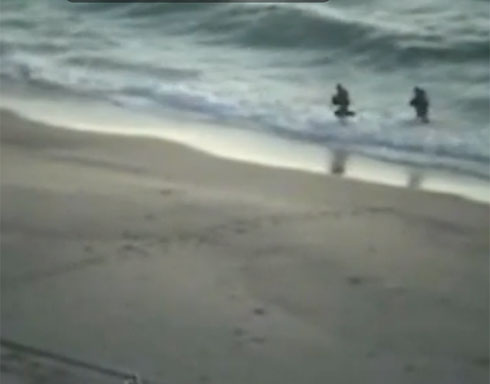
Hamas naval commandos.
Suspects in the Sea: Hamas' naval commandos planning Israel attack
Military assessments singal out Hamas naval commandos as significant threat in next conflict with high motivation, advanced training and Western technology.
Intensive training and advanced equipment are turning Hamas' elite naval commandos into a dangerous new weapon according to recent IDF assessments - a weapon with potential to strike along Israel's coast with little warning.

According to the military, Hamas was quick to learn from their infiltration attack from the sea at Ziqim beach during last year's Operation Protective Edge which took Israel by surprise but ended in the death of four commandos.
Recent assessments have officials concerned enough to start considering where the commandos may intend the strike next.
One option being considered is an infiltration relatively deep into Israel during which the Hamas operatives could arrive silently by sea and come ashore just north of Ashkelon and south of Ashdod.
From there, the properly trained commandos could accurately fire small projectiles at trade vessels docked in Ashdod. Such an attack would more likely than not completely shut down sea trade to Israel for the immediate duration of conflict.
Hamas fighters in Gaza would offer support for those inside Israeli territory by firing a severe barrage of rockets and mortars into the south and even as far north as Tel Aviv.
But the infiltrators would make use of more than rockets from the Gaza Strip. Officials say the diving equipment found on those killed at Ziqim was the most advanced in the world and produced in a Western country. Assessments suggest that Hamas still has dozens of the complicated systems that allow operatives to dive and breathe underwater for as long as four hours.
The IDF views the attack at Ziqim as something of a trail run, meant to test the capabilities and potential of sea-born strikes for the future.
An additional target for the commandos during the next conflict with Gaza could be to destroy power plant smokestacks south of Ashkelon which provides electricity to much of southern Israel.
Beyond the potential physical damage, hitting the smokestacks would provide a feeling of victory that would be sure to boost motivation further among Hamas fighters.
Hamas is said to have double the size of the unit in the last year, filling its ranks with highly motivated individuals inspired by the infiltration at Ziqim.
Despite their failed attempt at harming any Israelis, Hamas saw the attack as a victory when they acquired secret IDF footage showing that the commandos were active on the beach for 40 minutes before being killed and had successfully planted an explosive device on an Israeli tank.
The resulting explosion caused no injuries, but the damage had been done. Not only did the secret film prove that Hamas had succeeded in surprising security forces and infiltrating into Israeli territory, but the success of acquiring the tape in one of the severest breaches of Israeli security in recent history promoted high motivation among the fighters.

Smokestacks south of Ashkelon - a potential target for Hamas' naval commandos. (Photo: Zafrir Aviuv) (צילום: צפריר אביוב)
Security officials also believe that Hamas infiltration from the sea would be difficult to predict or spot beforehand. The IDF suspects that the commandos would most likely strike during the middle of the day, doing away with Israel's technological edge in the dark hours of night.
Officials aren't waiting for an attack however, and ground forces have increased cooperation with the navy in monitoring the beaches near Gaza. Additionally, an advanced military system has been deployed beneath the waves, designed to detect suspicious movement in the water and alert naval forces who could arrive on the scene and deploy underwater explosives to neutralize the divers.
A similar system known as Aqua Shield has been deployed in northern Israel to counter the threat of Hezbollah's diving commandos. The Red Sea near Eilat is also due to receive the system in the near future.













